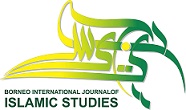Stabilizing Muslim Marriages: Some Reflections on Ethical Dimension of Family Law Reform
Abstract
Marriage breakdowns and family instability with their debilitating after-effects on women and children are the hallmark of greatly mechanized global community at present time. To remedy the situation, social scientists have diagnosed a multitude of variables as the precursor for the upward trends in marriage breakdowns and family disintegration. In Malaysian context, women`s financial independence, easy access to multimedia and early marriage are among the factors which account for the rising phenomenon of divorce even during the early years of marriage among Muslims. To remedy the situation, marriage counseling, law reform and pre-marriage courses are mostly emphasized by both mainstream legal scholars and women right activists. It is my considered opinion that these formalistic approaches if not integrated with the emphasis on ethical side of Islamic law may cause more marriage breakups than enhancing families. The bigger issues in terms of ethical management of Muslim family, such as marriage fidelity, sense of commitment to care for women and children, and spousal mutual empathy and responsibility may help a great deal in acculturating our society from early childhood to adolescence and through adulthood. The paper, therefore, argues for the more concentrated ethical approach for addressing the underlying causes of marriage disability in order to give more effect and meaning to the existing formalistic social and legal measures by reforming Muslims` mindset and outlook towards family.
Keywords: family disability and marriage breakdowns in Malaysia, ethical management.
References
Ahmad, Anis. Women and Social Justice: An Islamic Paradigm. Institute of Policy Studies, 1996.
Al-`Ati, Hammudah `Abdu. The Family Structure in Islam. Indiana: American Trust Publications, 1995.
Al-Baihaqi, Ahmad Ibn Husain. Al-Sunan Al-Kubrā. Vol. 3. Multan: Nashr al-Sunnah, 1985.
Al-Ghazali, Abu Hamid Muhammad ibn Muhammad. Ihyā `Ulūm Al-Dīn. Vol. 2. Cairo: Maktabah al-Tijāriyah al-Kabīr, n.d.
Al-Shabuni, Abdu al-Rahman. Nizham Al-Usrah Wa Hilli Mushkilatuhā Fī Daw`i Al-Islām. Beirut: Dār al-Fikr, 2001.
Al-Syatibi, Ibrahim ibn Musa. Muwāfaqāt Fī Ushūl Al-Sharī`a. Beirut: (Beirut :Dār al-Ma`rifah, n.d.
Al-Zuhaily, Wahbah. Juhud Al-Taqnīn Fiqh Al-Islāmi. Beirut: Mu`assisah al-Risālah, 1987.
Atiyah, Jamal al-Din. Nahwa Taf`īl Maqāshid Al-Sharī`ah. Beirut: Dār al-Fikr, 2001.
Azahari, Raihanah. “The Development of Family Mediation in Malaysian Muslim Society.” European Journal of Social Sciences 18, no. 2 (2010): 220–230.
Haneef, Sayed Sikandar Shah. “Women and Malaysian Islamic Family Law: Towards a Women-Affirming Jurisprudential Reform.” Journal of Social Welfare and Family Law 33, no. 1 (March 2011): 47–60. doi:10.1080/09649069.2011.571470.
Ibn `Ashur, Muhammad al-Thāhir. Maqāshid Al-Sharī`ah Al-Islāmiyyah. Tunisia: Al-Sharikah al-Tunisiyyah, 1978.
Ibnu Qudamah, Abu Muhamad Abdulah bin Ahmad. Al-Mughni. Vol. 7. Beirut: Dār Al-Fikr, 1404.
Lin, Boo Su. “One Divorce in Malaysia Every 10 Minutes.” Malaymail Online. May 3, 2014. http://www.themalaymailonline.com.
Ling, Sharon. “Authorities Alarmed by High Rate of Divorce Cases among Muslims.” The Star Online, September 24, 2013. http://www.thestar.com.my/news/.
Najjar, Abdu al-Majid al-. “Maqāshid Al-Sharī`ah Fī Ahkām Al-Usrah- Muwajjahāt Li Ahkām Al-Usrah Al-Muslimah Fi Al-Gharb.” Al-Majallah Al-`Ilmiyyah Li Al-Majlis Al-Urubbiyyah Li Al-Ifta Wa Al-Buhuth 7 (2014): 12.
Nawi, Nor Fadzlina. “Family Mediation in Malaysian Muslim Society: Some Lessons for the Civil Family Law in Malaysia.” SSRN Scholarly Paper. Rochester, NY: Social Science Research Network, October 1, 2011. https://papers.ssrn.com/abstract=1961940.
Stilt, Kristen, and Swathi Gandhavadi. “Strategies of Muslim Family Law Reform,” Faculty Working Papers, 2011. http://scholarlycommons.law.northwestern.edu/facultyworkingpapers/11.
Zaidan, Abdul Karim. Al-Mufassal Fi Ahkām Al-Mar`ah Wa Al-Bayt Al-Muslim Fi Al-Sharī`ah Al-Islāmiyyah. Vol. 3. Beirut: Muassisah al-Risālah, 2000.


.png)






